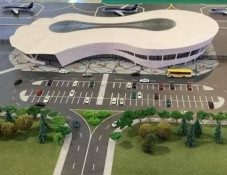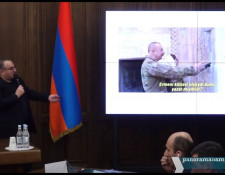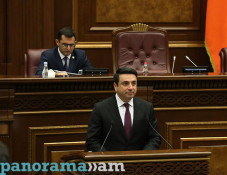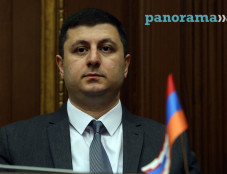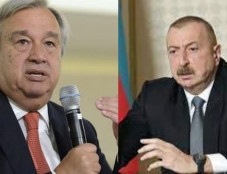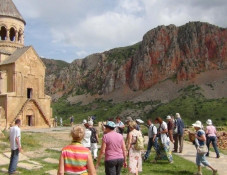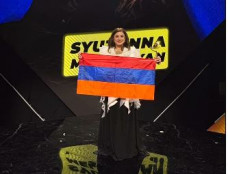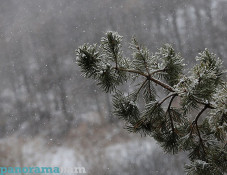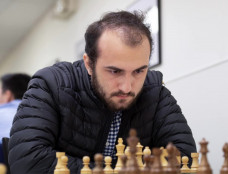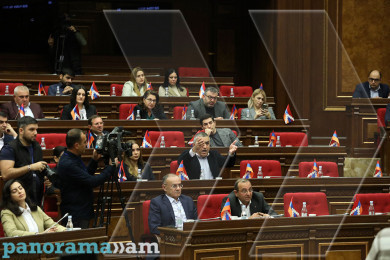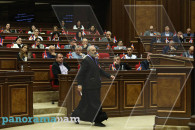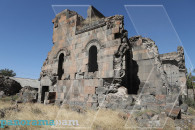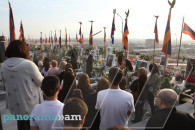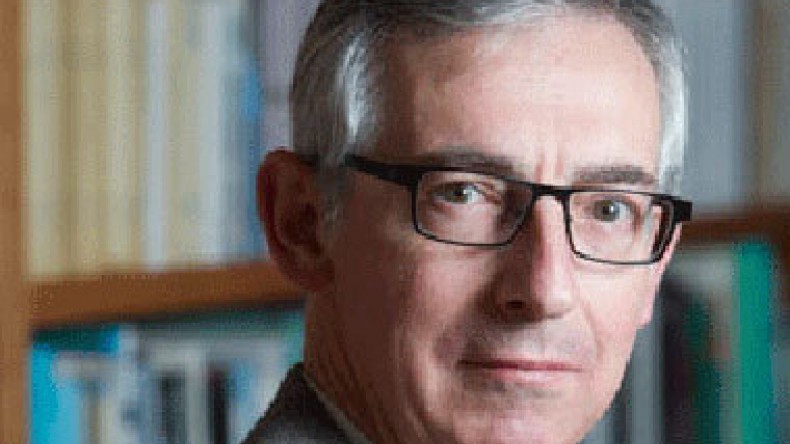
Bernard Coulie: Surrendering any territories to Azerbaijan is nonsense!
Panorama.am presents an interview with Dr. Bernard Coulie, a specialist in European studies and a professor of Armenian studies (language, culture, history) at UCL (Université Catholique de Louvain) in Belgium. Dr. Coulie is currently researching the South Caucasus region and the Nagorno-Karabakh conflict. He comments on Russia’s changing place in the world, the relations between Russia and the EU, the Nagorno-Karabakh conflict and also speaks about Armenian manuscripts and colophons.
- Dr. Coulie, as a specialist in European history and culture how would you assess the significance of Russia-led Eurasian Union in the framework of the contemporary European history? Do you think this block is going to somehow isolate its member states from Europe?
- First of all there is an important global phenomenon that has to be considered when speaking about Russia – we are now witnessing a shift of global influence from the Western world to the Pacific Ocean: the centre of the world is not the Atlantic Ocean anymore; it is becoming the Pacific Ocean now – the most significant developments will be taking place between America and Asia. I think we will have to redraw all our maps which portray Europe at the centre of the map. An interesting example demonstrating this trend is for example the fact that in China the maps in the school textbooks of geography portray China at the centre of the world. Within this context of this trend the Eurasian Union is a way to shift Russia more towards the East and make Russia a more active player in the East rather than in the West. Europe however has difficulty understanding Russia – the recent events in Ukraine demonstrated this lack of understanding towards Russia and its neighboring countries. But Europe has to pay more attention to this because Europe will end up being isolated in tomorrow’s world if Russia moves eastward.
- It is interesting that the West is speaking about isolating Russia, whereas in fact as you say it is Russia that can end up isolating Europe.
- Yes, absolutely. And one of the vivid examples of this is the major gas deal recently signed between Russia and China. So if Europe pushes Russia away it may ultimately isolate itself rather than harm Russia. This is something that Europe fails to understand. Similarly Europe also lacks an understanding of the South Caucasus.
- How does Europe fail to understand the South Caucasus? What can you say particularly about Armenia’s choice to join the Eurasian Union and Europe’s stance towards Armenia in this regard?
- This has actually been a very important and complicated choice for Armenia because Armenia has always wanted to be closer to Europe. Europe is asking these countries like Armenia and Georgia to make a choice between Europe and Russia and is unable to understand that these countries must have freedom to make multiple choices. The history of this part of the world has to be taken into consideration – this region has historically been in the border between East and West; that is why you cannot ask a country at crossroads to make such a choice – by doing so everybody misses great opportunities. Armenia must be able to enter the Eurasian union and also to have a close association with Europe. It can be made possible if the EU has a will, nothing is impossible in this regard.
- Can the EU possibly have a greater involvement in the region within the current setting?
- For the EU to have a greater role in the South Caucasus the EU itself has to transform – it has to have one single foreign policy instead of the 28 foreign policies that it now has. The problem is with the EU as such. The current European Neighborhood policy in its turn is not enough and we have to wait and see what the new leadership of the Union will bring forth.
- You have been researching the Nagorno-Karabakh conflict and have written an article titled “The Quintessential Conflict – A Cultural and Historical Analysis of Nagorno-Karabakh” in the book edited by M. Kambeck. How would you say the question of Nagorno-Karabakh, and the South Caucasus region as such, is important for the Europeans today? Why should they care?
- The issue of Nagorno-Karabakh is important for Europe because the South Caucasus region is very close to Europe, in fact much closer than the Europeans perceive it to be – the region is important in both civilizational and geopolitical terms. Europe should also learn lessons from the example of Nagorno-Karabakh, namely regarding how national identities can evolve and how they can bring to conflict in the 21st century. There are similarities in the processes of nation building in Europe and in the South Caucasus. Let’s take the example of Belgium. Europe has undergone the process of building nation states in the 19th century and all the European countries except Belgium are nation states. Belgium was built as an artificial country composed of two communities – French speaking and Dutch speaking – obliged to live together in one artificial state and now, 180 years after the independence they want to split into two different states. So it is very difficult to resist the trend or the will of the people to be independent and to live in independent communities. This process is also ongoing in Europe now (Spain, UK) and there are parallels with the case of Nagorno-Karabakh in this regard. Nagorno-Karabakh is not just about Armenians and Azerbaijanis, but this conflict displays fundamental questions about Europe and the modern world.
- Do you think it is possible to resolve the Karabakh conflict without addressing the question of the past, as is the case with the Madrid Principles? Do you think the principles that are currently on the negotiation table are ever likely to bring to peace?
- No I don’t think the conflict can be resolved ignoring the past; actually I don’t see any solution to the Karabakh conflict. As for Madrid Principles, they propose the surrender of certain territories to Azerbaijan – this is nonsense! If the territories surrounding the former NKAO were transferred to Azerbaijan it would be a disaster! This is a major concern as this can never bring to peace, but will instead only isolate Nagorno-Karabakh and give it to Azerbaijan, creating the same situation which preceded the war and which resulted in the war. The best thing that can happen is that the situation doesn’t change for the coming years. Any change of any kind would be bad for one of the parties. The most satisfactory option for all the parties would be to maintain the status quo; that is just realpolitik. We have to be patient; it is just a 20-year-old conflict. It is nothing compared to centuries – history is longer and slower than a human lifetime.
- Dr. Coulie, you specialize in classic Armenian language and Armenian history. How did you get interested in the Armenian studies and what are you studying in Armenia at the moment?
- I got interested in Armenian studies when I was studying classics – ancient Greek and Latin; so I started studying Armenian as another ancient language and that is how I became interested in present-day Armenia. Now I am teaching Armenian studies (including Classical Armenian – grabar and Armenian poetry) to the University students in Belgium. I am also working with the NGO European Friends of Armenia in Brussels. My main work in Armenian studies has to do with Armenian manuscripts and I often come to Armenia to work with the manuscripts in Matenadaran.
- So far what has been the most interesting discovery for you in this work?
- What has interested me the most in this are the Armenian colophons (hishatakaranner): these are inscriptions written by the Armenian monks who were copying ancient manuscripts and religious writings in the middle ages. At the end of their work they would add small personal notes, colophons, which described the circumstances of everyday life in which they were working. Thus these colophons give a detailed description of both the historical setting and life conditions of those times. All the Armenian monasteries like Haghpat, Sanahin and others have these colophons. They are truly fascinating and unique and are peculiar only to Armenians – I have studied many ancient languages but have never come across these kinds of colophons.
- In your work have you come across the Azerbaijani propaganda and falsifications which lay claim to the Armenian history and culture?
- Yes, I have heard about that. The Azerbaijanis as well as the Turks falsify history (for instance the part about Armenian Genocide) because history is a tremendous political leverage. Past is a major political factor and today all politics is based on the past. Every state instrumentalizes history for the sake of its own interests, even in the West and in Europe, but the ways and means of doing this are different. After all, the way we speak about our past in fact tells more about ourselves than about our past per se.
- Dr. Coulie, thank you very much for the interview.
Interview by Nvard Chalikyan
Related interviews:
Gérard-Francois Dumont: Neglecting historical facts makes solution of Karabakh conflict even harder
French expert: Recognition of Nagorno-Karabakh Republic is the only solution that can ensure stability in region
Kataryna Wolczuk: Armenia should be negotiating treaty of Eurasian Union, not only that of Customs Union
Michael Kambeck: If it hadn’t been for Egypt, Syria, etc., we would have seen much stronger EU engagement on Karabakh conflict
Newsfeed
Videos






